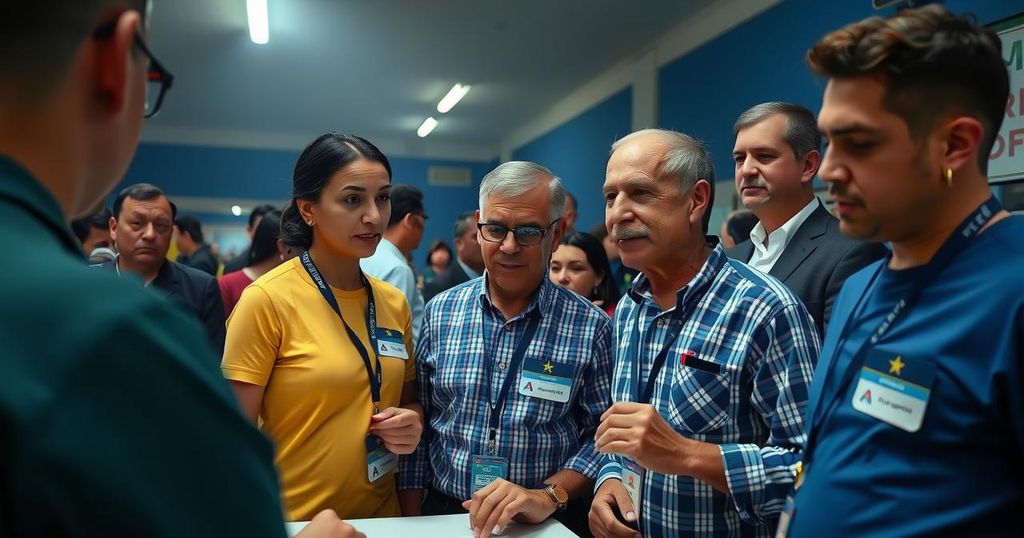Uruguayans Vote in Critical Presidential Run-off Election as Left Seeks to Regain Power

Uruguayans are voting in a presidential run-off election between leftist candidate Yamandu Orsi and right-wing Alvaro Delgado. The election follows a five-year term of a conservative government, with a close race predicted. Orsi represents the leftist Broad Front, hoping to return to power, whereas Delgado aims to maintain governance amidst economic discontent. Polls suggest significant competition, with the election outcomes awaited by a populace grappling with inflation and high living costs.
Voting commenced in the presidential run-off election in Uruguay, where citizens of the Latin American nation will decide between two primary candidates: Yamandu Orsi from the leftist Frente Amplio (Broad Front) and Alvaro Delgado from the National Party. This election is particularly significant as it marks a potential return to power for the leftist alliance led by former President Jose “Pepe” Mujica, after five years of right-wing governance under outgoing President Luis Lacalle Pou. Poll stations across the nation opened at 8:00 AM local time and are set to close at 7:30 PM, with preliminary results anticipated shortly thereafter.
In a political landscape characterized by relative calm compared to neighboring countries, polls indicate that the race is exceedingly close, with predictions of fewer than 25,000 votes separating the two candidates. President Lacalle Pou maintains a 50 percent approval rating, yet his party has faced challenges regarding its performance on crime-related issues, despite improvements in employment and wages during its tenure. Orsi secured 43.9 percent of the vote in October for the Broad Front, while Delgado garnered 26.8 percent but benefits from the support of the conservative Colorado Party.
Both candidates are vying for undecided voters from smaller parties, which accounted for approximately eight percent of the initial votes. However, neither has presented new pledges in recent weeks aimed at attracting these voters. As the incumbents grapple with high inflation and living costs, a crucial question looms as to whether this election will reflect a global trend of declining support for sitting parties.
With a heightened emphasis on maintaining stability and capitalizing on the current administration’s popularity, both Orsi and Delgado are poised to influence Uruguay’s political future significantly. Their strategies will be observed closely as the nation anticipates the final results of this pivotal election, potentially shaping the country’s trajectory in the coming years.
Uruguay, a small nation with a population of approximately 3.4 million, is currently engaged in a pivotal presidential run-off election. This election is particularly noteworthy as it follows a five-year term of right-wing governance, which poses the leftist Frente Amplio alliance an opportunity for resurgence, spearheaded by respected former President Jose “Pepe” Mujica. Alcohol undercurrents of dissatisfaction and changing political sentiments, influenced by the ongoing economic challenges such as inflation and living costs, render this election a significant moment in the nation’s modern democracy.
In conclusion, the Uruguay presidential run-off election represents a critical juncture for the nation, as voters decide between continuing with the incumbent National Party or shifting power back to the leftist Frente Amplio. With polling results predicting a tightly contested vote and a political atmosphere devoid of extreme tension, the outcome could either reinforce the right-wing governance that has been in place or facilitate a notable shift towards leftist leadership, contingent upon the electorate’s response to economic pressures and existing policies.
Original Source: www.aljazeera.com








